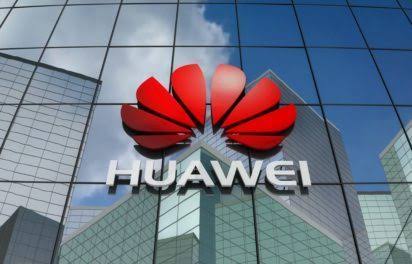
Huawei Cloud released Kunpeng ECS (Elastic Cloud Server) cloud services and Partner Program 2.0 recently. The Kunpeng-powered cloud services will be made available to African customers by the end of December 2019 and aim to offer 15% faster multi-core computing power and a 30% higher performance/price ratio than the industry average.
Speaking at the Huawei Cloud, AI Forum, Rui Houwei, President of Huawei Cloud Africa, noted the significance of recent technological breakthroughs. “The computing industry has gone through the mainframe computer, minicomputer, and x86 server stages and will move to the multi-architecture computing stage,” he said.
“The computing power previously available only in the x86 architecture, is now available in different architectures, allowing for the use of appropriate computing power for each specific application.”
“This January, Huawei launched Kunpeng 920, the industry’s highest-performing 7nm server processor in the Kunpeng architecture. The Huawei Cloud ECS is powered by the Kunpeng servers and supports multi-architecture computing.”
Rui also expressed optimism at Kunpeng’s capabilities for the local market, “Huawei can innovate across the entire stack ranging from chips and servers to cloud platforms. In-depth collaboration between chips, hardware, and software enable Kunpeng cloud services to deliver unparalleled performance. We are deeply committed to providing diversified cloud services and solutions, to help public institutions and private companies take intelligence and mobility to even greater heights.”
At the forum, Huawei also outlined its Partner Program 2.0 initiative, which offers crucial support for partners, about online and onsite training, market expansion, marketing activities, and technical understanding.
In Africa alone, Huawei Cloud has already established partnerships with over 65 partners spanning diverse industries, including telecom, finance, manufacturing, education, retail, and logistics, as well as the public sector. “Such wide-ranging collaboration is likely to result in unique, and broadly-shared benefits across the ecosystem,” said Rui.
According to an IDC report, South Africa’s spending in public cloud services will reach R11.5 billion in 2022, a three-fold increase from 2017. This expansion is projected to create 112,000 jobs. By 2020, cloud services will account for 67% of enterprises’ total spending in IT infrastructure and software.
More than 85% of enterprises are expected to use the hybrid-cloud or multi-cloud architecture.
Huawei has been operating in Africa for over 20 years and has developed an in-depth understanding of the requirements, opportunities, and challenges faced by African customers. Its local teams are fully equipped to provide premium services for customers spanning 54 different African countries.
Huawei Cloud services were officially launched in South Africa this February, making it the first cloud service provider to utilize local data centres in that country. Over the past eight months, Huawei Cloud has experienced rapid growth in Nigeria, Kenya, and Zambia.




